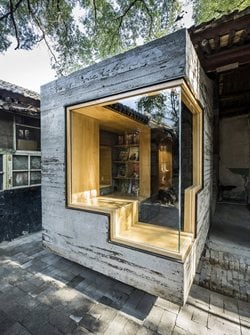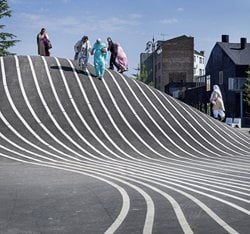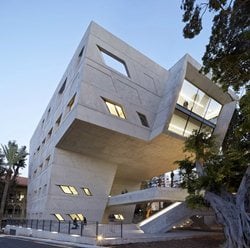
The six winners of the Aga Khan Award for Architecture were proclaimed on October 3rd in Abu Dhabi. The venue of the ceremony, announced by His Excellency Awaidha Murshed Al Marar, will be the Al Jahili fort in Al-Ain, location selected for its architectural and cultural importance to the Muslim world.
Established by Aga Khan IV in 1977, the Award aims to identify and reward architectural concepts addressing the needs and aspirations of Islamic societies in the fields of contemporary design, social housing, community development and improvement, restoration, reuse and area conservation, as well as landscape design and improvement of the environment. The three-year cycle Award recognizes projects, teams, and stakeholders in addition to buildings and people, with prizes totalling US$ 1 million.
The winners of 2016 edition are:
Bait Ur Rouf Mosque, Dhaka (Architect: Marina Tabassum)
A refuge for spirituality in urban Dhaka, selected for its beautiful use of natural light.

Friendship Centre, Gaibandha (Architect: Kashef Chowdhury / URBANA)
A community centre which makes a virtue of an area susceptible to flooding in rural Bangladesh.

Micro Yuan'er, Beijing (Architect: ZAO / standardarchitecture / Zhang Ke)
A children’s library selected for its embodiment of contemporary life in the traditional courtyard residences of Beijing’s Hutongs.

Superkilen masterplan, Copenhagen (Architects: BIG – Bjarke Ingels Group, Topotek 1 and Superflex)
A public space promoting integration across lines of ethnicity, religion and culture.

Tabiat Pedestrian Bridge, Tehran (Architect: Diba Tensile Architecture / Leila Araghian, Alireza Behzadi)
A multi-level bridge spanning a busy motorway has created a dynamic new urban space.

The Issam Fares Institute for Public Policy and International Affairs, Beirut (Architect: Zaha Hadid Architects)
A new building for the American University of Beirut’s campus, radical in composition but respectful of its traditional context.


 77
77
 237
237
 1
1
 38
38
comment